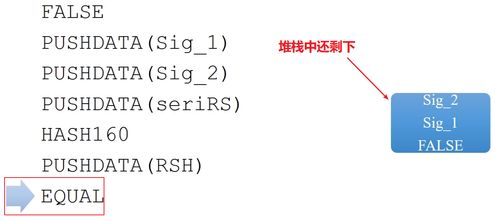来源:小编 更新:2025-01-20 13:49:29
用手机看
脚本区块链:揭开PHP与Python的区块链编程之旅
编程爱好者们!你是否曾想过,那些我们日常使用的脚本语言,竟然也能成为构建未来技术的基石?没错,今天我们要聊的就是这个话题——脚本区块链。想象用PHP或Python这样的脚本语言,打造一个属于自己的区块链系统,是不是很酷?那就让我们一起踏上这段奇妙的编程之旅吧!

区块链,这个近年来备受瞩目的技术,其核心思想就是去中心化。而脚本语言,作为一种轻量级、易于学习的编程语言,恰好为区块链的普及提供了便利。PHP和Python作为两种流行的脚本语言,在区块链领域也有着广泛的应用。
PHP,作为Web开发领域的“老将”,凭借其强大的社区支持和丰富的库资源,成为了区块链开发的热门选择。而Python,以其简洁的语法和强大的库支持,在区块链领域也占有一席之地。

那么,如何用PHP打造一个简单的区块链呢?以下是一个简单的示例:
```php
class Block {
public $index;
public $timestamp;
public $data;
public $previousHash;
public $hash;
public function __construct($index, $data, $previousHash = \0\) {
$this->index = $index;
$this->timestamp = time();
$this->data = $data;
$this->previousHash = $previousHash;
$this->hash = $this->calculateHash();
}
public function calculateHash() {
return hash('sha256', $this->index . $this->timestamp . $this->data . $this->previousHash);
}
class Blockchain {
private $chain = [];
public function addBlock($data) {
$newBlock = new Block(count($this->chain) + 1, $data);
array_push($this->chain, $newBlock);
}
public function getChain() {
return $this->chain;
}
$blockchain = new Blockchain();
$blockchain->addBlock(\First block\);
$blockchain->addBlock(\Second block\);
print_r($blockchain->getChain());
在这个示例中,我们定义了两个类:`Block`和`Blockchain`。`Block`类用于创建区块,包含区块的索引、时间戳、数据和前一个区块的哈希值。`Blockchain`类用于管理整个区块链,包括添加区块和获取区块链信息。

Python同样可以轻松实现区块链。以下是一个简单的Python区块链示例:
```python
import hashlib
import json
from time import time
class Block:
def __init__(self, index, transactions, timestamp, previous_hash):
self.index = index
self.transactions = transactions
self.timestamp = timestamp
self.previous_hash = previous_hash
self.hash = self.calculate_hash()
def calculate_hash(self):
block_string = json.dumps(self.__dict__, sort_keys=True)
return hashlib.sha256(block_string.encode()).hexdigest()
class Blockchain:
def __init__(self):
self.unconfirmed_transactions = []
self.chain = []
self.create_genesis_block()
def create_genesis_block(self):
genesis_block = Block(0, [], time(), \0\)
genesis_block.hash = genesis_block.calculate_hash()
self.chain.append(genesis_block)
def add_new_transaction(self, transaction):
self.unconfirmed_transactions.append(transaction)
def mine(self):
if not self.unconfirmed_transactions:
return False
last_block = self.chain[-1]
new_block = Block(index=last_block.index + 1,
transactions=self.unconfirmed_transactions,
timestamp=time(),
previous_hash=last_block.hash)
new_block.hash = new_block.calculate_hash()
self.chain.append(new_block)
self.unconfirmed_transactions = []
return new_block.hash
def is_chain_valid(self):
for i in range(1, len(self.chain)):
current = self.chain[i]
previous = self.chain[i - 1]
if current.hash != current.calculate_hash():
return False
if current.previous_hash != previous.hash:
return False
return True
创建区块链实例
blockchain = Blockchain()
添加新交易
blockchain.add_new_transaction(\Alice -> Bob -> 5\)
挖矿
blockchain.mine()
打印区块链
print(blockchain.chain)
在这个示例中,我们定义了两个类:`Block`和`Blockchain`。`Block`类用于创建区块,包含区块的索引、时间戳、数据和前一个区块的哈希值。`Blockchain`类用于管理整个区块链,包括添加区块、挖矿和验证区块链的有效性。
脚本区块链的应用领域非常广泛